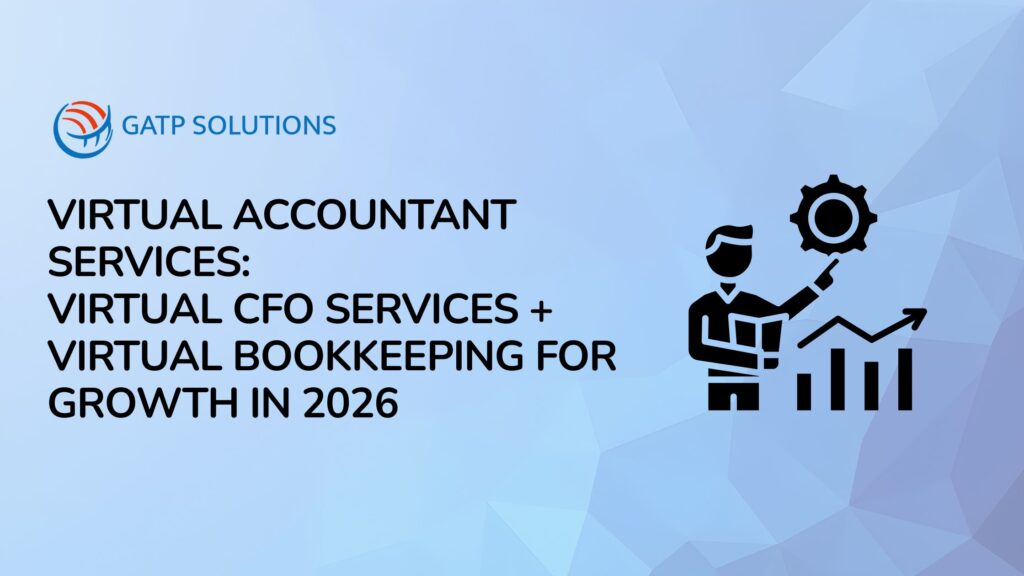Why do so many growing companies invest in the best cloud accounting software, yet still struggle with unclear numbers, slow month-end closes, or financial blind spots that affect decision making? The answer is simpler than most expect. The software records the activity, but it does not interpret it. It automates transactions, but it does not explain trends. It organizes data, but it does not turn that data into direction. This gap is now more visible than ever. Even with tools like QuickBooks, Xero, and NetSuite holding the majority of the market, businesses continue to face reporting inconsistencies, forecasting issues, and operational bottlenecks that software alone cannot solve. That is where the right partner becomes as important as the right platform. In this blog, we explore what each major platform does well, where companies still get stuck, and how the right support structure helps businesses turn software into clarity, accuracy, and reliable financial decision making. What Do Businesses Actually Get From Today’s Leading Accounting Softwares? Most companies adopt cloud accounting software expecting immediate clarity, fewer errors, and smoother month-end reporting. These systems deliver strong automation and reliable data storage, which is why QuickBooks and Xero command nearly 80% of the SMB market and NetSuite dominates the mid-market. They handle routine financial tasks well, reduce manual work, and consolidate key information in one place. But the core reality remains unchanged. These platforms act as powerful data repositories, not financial strategists. A 2025 study showed that 75% of employer firms identified rising costs as their top challenge, yet software dashboards only show where money went, not how financial choices should change. Even with strong cloud accounting software, operational gaps appear quickly when workflows break, reporting logic becomes outdated, or teams lack the right oversight. QuickBooks, Xero, or NetSuite: Which One Fits a Growing Company Best? QuickBooks Pros Strong tax and compliance features for US businesses. Class and location tracking for precise reporting. Large talent pool offering QuickBooks bookkeeping services. Cons Disconnects from inventory or CRM systems, causing manual data work. Lighter audit controls compared to enterprise ERPs. For Example: A small ecommerce brand using QuickBooks bookkeeping services often ends up with duplicated sales data when storefront apps fail to sync correctly. Xero Pros Excellent automation and bank feed categorization. Superior multi-currency management. Strong ecosystem for xero bookkeeping workflows. Cons Complex reports require customization. Performance challenges appear at high transaction volume. Let’s take a scenario: Global digital service company enjoys Xero’s simplicity but still needs external tools for consolidated profitability analysis. NetSuite Pros Unified ERP that connects finance, inventory, CRM, and operations. Native multi-entity consolidation. Deep customization for complex workflows, which drives searches like what is NetSuite for scaling companies. Cons Costly to implement. Too heavy for smaller businesses. Often needs a dedicated admin. Example: A fast-growing manufacturer moves to NetSuite for inventory visibility but still struggles without expert support to link modules correctly. If These Platforms Are So Advanced, Why Do Companies Still Struggle With Finance Operations? Automation is only as accurate as the setup behind it. Incorrect rules, outdated categories, or broken workflows create a cycle where errors multiply before anyone notices. 78% of small business failures stem from poor financial management rather than product issues. With manual entry error rates at one percent, a company processing ten thousand transactions a year could have one hundred errors that go completely unnoticed. Leaders also face the “last mile” issue. Software produces reports, but many still do not tie back to real operations. This is why seventy three percent of auditors spend over half their time in spreadsheets. Even companies using advanced accounting software cloud tools still struggle when reporting logic, integration flow, or month-end processes are not well designed. What Can Accounting Software Still Not Do, Even When Used Properly? Even the strongest systems have clear limitations because software cannot apply judgement or context. It processes inputs, but it cannot guide strategy. Key limitations of accounting software Cannot explain why cash flow changes or what operational decisions caused it. Cannot recommend pricing adjustments, hiring timing, or spending priorities. Cannot adapt to business model shifts without manual updates. Cannot detect deeper risks like margin leakage or duplicated payments. Cannot align finance data with sales, operations, or hiring plans. Cannot evaluate compliance strength or ethics in tax decisions. Cannot ensure teams follow consistent workflows month after month. Cannot prevent rule drift, even in tools designed for xero bookkeeping or QuickBooks bookkeeping services. Cannot deliver strategic reporting, even in advanced systems like what is NetSuite driven platforms. Cannot maintain oversight without a human review layer, even when using accounting software cloud tools. How GATP Solutions Bridges the Gaps That Software Can’t Cover GATP Solutions provides the judgement, structure, and financial clarity that no software can replicate. Our work focuses on making the systems perform the way the business needs them to. System setup, cleanup, and optimization We fix outdated rules, rebuild categories, and realign the system with current operations. Workflow design tailored to the business Automations work only when workflows support them. GATP Solutions ensures both stay aligned. Month-end close management We handle reconciliations, accruals, and financial reviews to produce accurate monthly numbers. Monthly Risk Audit This process identifies issues that automation cannot detect, such as duplicated transactions or mismatched data across platforms. Quarterly Tax Positioning Instead of reviewing taxes once a year, we help businesses adjust spending and decisions throughout the year. Engineering support for integrations Our in-house engineers build API flows that remove manual copy-paste work between CRMs and accounting platforms. Cross-platform expertise Teams get guidance across QuickBooks, Xero, and NetSuite, supported by specialists who understand how each system behaves as the business grows. What Changes When You Combine the Right Platform With the Right Partner? When companies pair the right software with consistent financial expertise, the entire finance function becomes more reliable. Reconciliations finish faster, reports arrive sooner, and forecasting improves. Many teams see reconciliation time drop by up to sixty percent once workflows are rebuilt. Leadership moves away from fixing errors





